Thyroid Cancer
The majority of thyroid masses are benign; however, our division of surgical oncology is experienced in management of both benign and malignant thyroid growths.
Mount Sinai South Nassau's approach to comprehensive cancer care is one that combines the most advanced surgical techniques with a warm and caring attitude that enables both patients and their families to feel comfortable and confident while making important medical decisions. Thyroid cancer occurs in the cells of the thyroid — a butterfly-shaped gland located at the base of your neck, just below your Adam's apple. Your thyroid produces hormones that regulate your heart rate, blood pressure, body temperature and weight.
Diseases and Disorders of the Thyroid
There are many diseases and disorders associated with your thyroid and these can develop at any age. They can result from a variety of causes including injury, disease or dietary deficiency, but in most cases, they are related to:
- Too much or too little thyroid hormone (hyperthyroidism and hypothyroidism, respectively)
- Abnormal thyroid growth
- Nodules or lumps within the thyroid
- Thyroid cancer (neoplasms, benign or malignant)
Although thyroid cancer isn't common in the United States, rates seem to
be increasing. Doctors think this is because new technology is allowing
them to find small thyroid cancers that may not have been found in the
past. Most cases of thyroid cancer can be cured with treatment.
Symptoms
Thyroid cancer typically doesn't cause any signs or symptoms early in the disease. As thyroid cancer grows, it may cause:
- A lump that can be felt through the skin on your neck
- Changes to your voice, including increasing hoarseness
- Difficulty swallowing
- Pain in your neck and throat
- Swollen lymph nodes in your neck
Risk factors
Factors that may increase the risk of thyroid cancer include:
- Being Female. Thyroid cancer occurs more often in women than in men.
- Exposure to high levels of
radiation. Examples of exposure to high levels of radiation include
radiation treatments to the head and neck and fallout from sources such
as nuclear power plant accidents or weapons testing.
- Certain inherited genetic
syndromes. Genetic syndromes that increase the risk of thyroid cancer
include familial medullary thyroid cancer and multiple endocrine
neoplasia.
When to see a doctor
If you experience any of these signs or symptoms, make an appointment with your doctor. Thyroid cancer isn't common, so your doctor may investigate other causes of your signs and symptoms first.
Diagnosis
Once the nodule has been discovered, your doctor will determine whether the rest of your thyroid is healthy or whether the entire thyroid gland has been affected. The initial blood tests may include measurement of thyroid hormone (thyroxine, or T4) and thyroid-stimulating hormone (TSH) to determine whether your thyroid is functioning normally.
Since it’s not possible to determine whether a thyroid nodule is cancerous by physical examination and blood tests alone, the evaluation of the thyroid nodules often includes specialized tests such as thyroid ultrasound and fine needle biopsy.
Treatments
All thyroid nodules or neoplasms that are cancerous, or that are highly suspicious of being cancer, should be removed surgically by an experienced thyroid surgeon. The majority of thyroid cancers are highly curable and rarely cause life-threatening problems. Thyroid nodules or neoplasms that are benign should be watched closely and tracked by your doctor. Surgery may still be recommended for anything that is benign if it continues to grow, or develops worrisome features over the course of follow up.
Specialized surgical procedures available include pancreatic resection of endocrine tumors and adrenalectomy (removal of the adrenal gland), when indicated.
Schedule an appointment
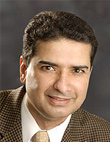
Rajiv V. Datta, MD, FACS, FRCS, FICS
Medical Director, The Gertrude & Louis Feil Cancer Center
Chair, Department of Surgery
Chief, Division of Surgical Oncology and Head & Neck Oncology
Dr. Datta established Mount Sinai South Nassau’s Surgical Oncology Program in 2001. He specializes in Thyroid and Head & Neck Neoplasms. He trained at Grant Medical College and Tata Memorial Cancer Center in India, with advanced training in plastic surgery and surgical oncology in the UK, prior to a research fellowship at Memorial Sloan-Kettering Cancer Center. He completed a dual fellowship in surgical oncology and head and neck surgery at Roswell Park Cancer Institute in Buffalo, NY and then served on the faculty of Maimonides Medical Center and Coney Island Hospital. Dr. Datta's approach to comprehensive cancer care is one that combines the most advanced surgical techniques with a warm and caring attitude that enables both patients and their families to feel comfortable and confident while making important medical decisions.
Mount Sinai South Nassau
One Healthy Way, Oceanside, NY 11572
(516) 632-3350
Mount Sinai South Nassau Gertrude & Louis Feil Cancer Center
1 South Central Ave., Valley Stream, NY 11580
(516) 632-3350
Learn More
Mount Sinai South Nassau’s Cancer Treatment & Oncology Care
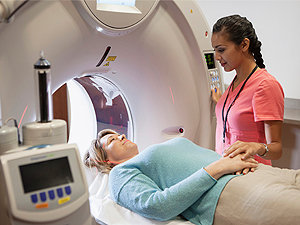
Types of Cancers We Treat
For all major types of cancer, you can rely on the expertise and experience of your health care providers at...
Read More
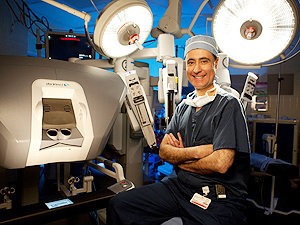
Cancer Treatments
Mount Sinai South Nassau offers the only cancer program on Long Island to offer the combination of the Novalis Tx™...
Read More

Your Care Team
The cancer (or oncology) program of Mount Sinai South Nassau makes cancer diagnosis, treatment and...
Read More
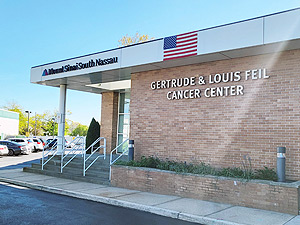
Gertrude & Louis Feil Cancer Center
In addition to the full range of cancer care and support at Mount Sinai South Nassau, we also offer...
Read More
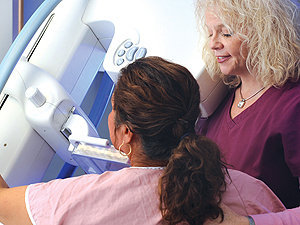
Breast Cancer
At Mount Sinai South Nassau, patients who have recently learned they have breast cancer as well as...
Read More
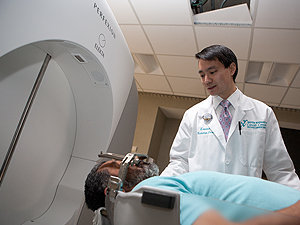
Brain Cancer
For brain cancer and other conditions inside the skull, our experienced surgeons offer our patients the premier...
Read More
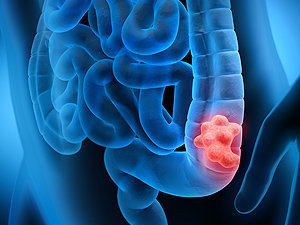
Colorectal Cancer
The expert colorectal physicians and surgeons at Mount Sinai South Nassau specialize...
Read More

Gynecological Cancer
Cancer diagnosis and treatment are the strong focus of the women’s care specialists at Mount Sinai South Nassau...
Read More
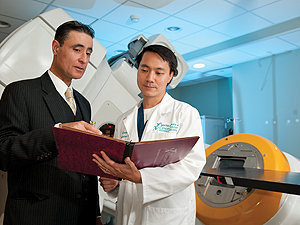
Lung Cancer
At Mount Sinai South Nassau, if you need chest surgery for cancer or other conditions of the...
Read More

Melanoma Program
Though melanoma is the least common type of skin cancer, it’s the most deadly. So Mount Sinai South Nassau's...
Read More

Prostate Health
For men with conditions related to the prostate gland, the Center for Prostate Health offers experts who are...
Read More

Pancreatic Cancer
Pancreatic cancer is a type of cancer that begins as a growth of cells in the pancreas...
Read More
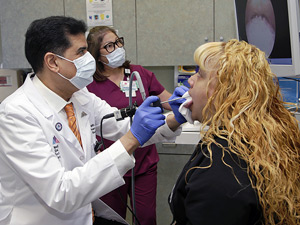
Surgical Oncology
Every year our surgeons perform a large number of procedures to diagnose and treat a variety of cancers...
Read More
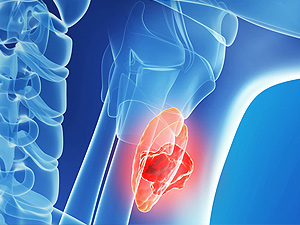
Thyroid Cancer
The majority of thyroid masses are benign; however the division of surgical oncology has...
Read More
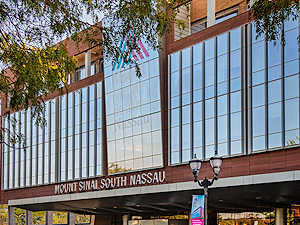
Accreditations & Certifications
Every member of our staff in the cancer program at Mount Sinai South Nassau is committed to bringing our patients...
Read More

Support & Education
Our cancer specialists are dedicated to providing support to you and your loved ones before, during and after...
Read More